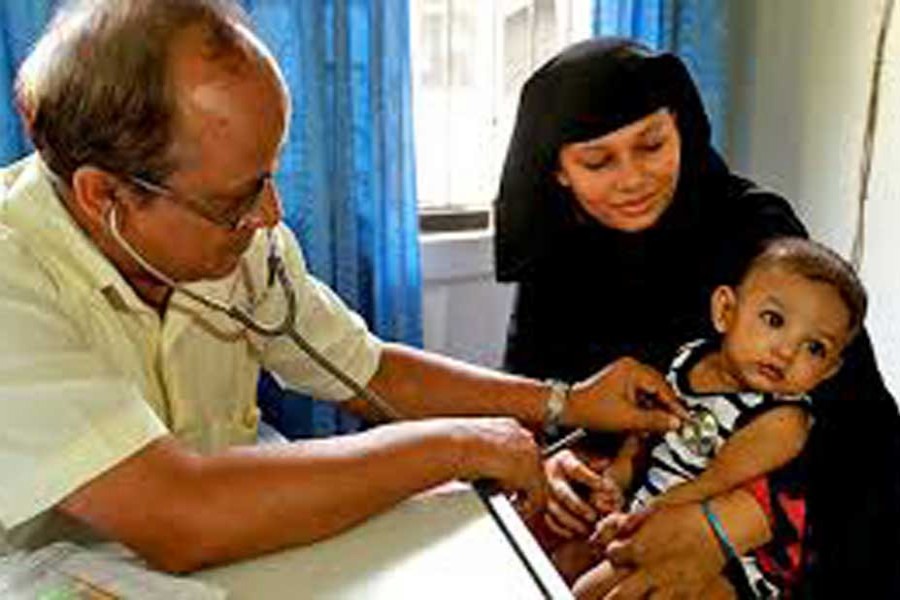Comparing to their non-slum urban and village counterparts, community living in urban slums in Bangladesh get far less access to maternal and child health services.
Only 29 per cent population of the urban slum community gets access to maternal and child health service as against such access percentage of 56 and 65 for communities living in non-slum urban and village regions.
Presenting a keynote at a health policy dialogue in the city on Saturday, Assistant Scientist and Deputy Project Coordinator of Universal Health Coverage Programme of icddr,b, Dr Sohana Shafique, provided the statistics referring to some report findings of 2013 and 2017.
"Nearly 70 per cent urban poor seek care from pharmacies and other 30 per cent go to doctors' chambers, government hospitals, private clinics and NGO-run clinics. The lack of proper identified referral-chain is responsible for this in urban areas", said Dr Sohana, reports UNB.
She said 65 per cent of the respondents had pointed out 'proximity' as a factor motivating their choice to depend more on pharmacies while they mentioned about shortcomings of limited service hours, weekends etc. in the state-run health facilities.
Experts attending the event organised by icddr,b's Strengthening Health, Applying Research Evidence (SHARE) project at CIRDAP Auditorium, noted that urban poor slum dwellers face much inequality in getting primary health services, spend more out-of-pocket expenditures, have lack access to quality health care and nutrition. As a result, they observed, the poor suffer from intense health complications thereby posing a risk in facing the challenge of achieving Sustainable Development Goals (SDG) and Urban Health Coverage (UHC) for the government.
Dr Sohana Shafique said the infant and child mortality rate are higher in the slums as well as has gap of their getting Expanded Programme on Immunization (EPI) coverage, adult nutrition and has higher rate of non-communicable diseases (NCD) there.
Dr Sohana said, referring a study of 2017, at least 40 per cent urban poor are of overweight and obese while among the total urban slum dwellers 22 per cent women and 15 per cent men had diabetes caused by their food habit, she added.
The scientist also said fragmented service delivery, absence of well-defined population group, lack of planning in service delivery were the main problem in urban health sector.
The other participants said health care delivery is easier in rural areas as there has very low amount of mobile community but in urban area, addressing everyone becomes a big problem.
They also recommended obtaining a well-furnished urban health care providing policy which will incorporate all relevant stakeholders and create a well-managed service providing chain for the poorer community in urban areas.
Chief Consultant of BIRDEM Prof Dr TA Chowdhury chaired the programme with Dhaka University's Mass Communication and Journalism professor Robaet Ferdous moderating it.


